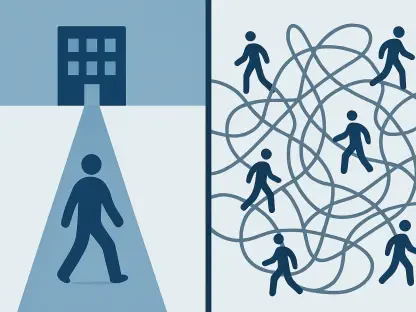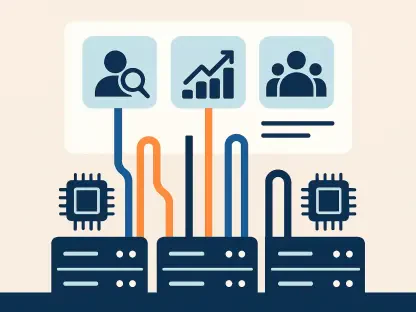In an era where digital threats loom larger than ever, the ability of a nation’s workforce to withstand cyberattacks is a critical measure of its security posture, and France, despite its rich history of technological innovation and strong economy, finds itself grappling with a surprising vulnerability in cybersecurity. Recent data reveals that French employees are among the least confident in identifying and mitigating cyber threats compared to their international counterparts. This gap raises pressing questions about the state of security awareness and training within French organizations. As cybercriminals increasingly exploit human error as the easiest entry point, understanding the root causes of this lag becomes essential. This article delves into the challenges facing France’s cyber resilience, examines the stark statistics highlighting the issue, and explores potential strategies to bridge the divide in an ever-evolving threat landscape.
1. A Concerning Gap in Confidence
French employees exhibit a troubling lack of confidence when it comes to identifying cyber threats, a factor that significantly undermines national cyber resilience. Recent surveys indicate that only 67.7% of French workers feel assured in their ability to spot phishing attacks, a stark contrast to the global average of 86%. This places France at the lower end of the spectrum among surveyed regions. The lack of assurance spans various attack types, with nearly half of employees admitting difficulty in recognizing deepfake videos, where confidence stands at just 55.6%. Other areas, such as email phishing, smishing, social engineering, social media phishing, and vishing, also show low confidence levels ranging between 59.6% and 69.9%. This pervasive uncertainty signals a critical need for improved education and awareness initiatives to empower employees against sophisticated threats that continue to evolve in complexity and frequency.
The implications of this confidence gap are far-reaching, as it directly correlates with the likelihood of falling victim to cyberattacks. Data reveals that 47.7% of French employees have already succumbed to such incidents, with email phishing being the most common at 19.3%. This high susceptibility rate underscores a disconnect between perceived and actual readiness. Unlike technical defenses that can be updated or patched, human vulnerability remains a persistent challenge that requires targeted intervention. The statistics suggest that without addressing this foundational issue, French organizations risk becoming easy targets for cybercriminals who exploit human error. Comparing this to broader European trends, where a third of employees are deemed phish-prone before training, the situation in France appears particularly acute, demanding urgent action to elevate security awareness and reduce the attack surface posed by untrained personnel.
2. The Impact of Insufficient Training
A significant barrier to enhancing cyber resilience in France lies in the inadequate access to security awareness training (SAT) among employees. Alarmingly, 33.3% of French workers report receiving no form of SAT, leaving them ill-equipped to handle the myriad cyber threats they face daily. This absence of structured education contributes to high click rates on malicious links, with initial European benchmarks showing a phish-prone percentage of 32.5% before any training intervention. The lack of consistent training programs means that many employees are not exposed to the evolving tactics used by attackers, such as personalized phishing emails or social engineering schemes. Bridging this gap requires a concerted effort from organizations to prioritize human risk management as a core component of their cybersecurity strategy, ensuring that employees are not left as the weakest link in the defense chain.
When training is implemented, the results speak volumes about its effectiveness in reducing cyber risks. For European organizations employing continuous SAT and phishing simulations, the initial click rate of 32.5% drops to 20.7% within three months and further plummets to just 5% after a year, representing an 85% reduction in phishing susceptibility. This dramatic improvement highlights the transformative potential of sustained, adaptive training tailored to real-world threats. In France, among employees who do receive simulations, 87.5% find them relevant to their roles, and 86.5% believe these exercises enhance their awareness of actual phishing dangers. These findings emphasize that investing in regular, personalized training not only boosts confidence but also equips employees with practical skills to identify and thwart attacks, thereby fortifying the overall security posture of organizations across the nation.
3. Strategies for Building a Stronger Defense
Addressing the lag in French cyber resilience demands a proactive approach that prioritizes human-centric security measures alongside technical defenses. One effective strategy involves personalizing training programs to align with individual roles and the specific threats they encounter, ensuring relevance and engagement. Additionally, using neutralized real-world phishing emails as training material can provide employees with practical exposure to current attack methods. Continuous coaching is another vital element, as it reinforces security policies over time and fosters lasting behavioral change. Recognizing cultural nuances in training delivery is equally important, as different regions may respond uniquely to educational approaches. Finally, deploying technologies that intervene at the point of risk can guide employees toward safer decisions, disrupting negative security behaviors before they result in breaches.
Looking back, the journey to bolster cyber resilience in France revealed a clear path through enhanced training and strategic interventions. The adoption of frequent, adaptive security awareness programs proved instrumental in slashing click rates and building employee confidence across Europe. Organizations that embraced a human-first mindset, combining robust technical safeguards with personalized education, witnessed remarkable transformations in their workforce’s ability to counter threats. Moving forward, the focus should be on scaling these best practices nationwide, ensuring that no employee remains untrained or unprepared. By investing in continuous learning and innovative tools, French companies can turn their workforce into a formidable line of defense, closing the resilience gap and setting a benchmark for others to follow in the global cybersecurity landscape.









